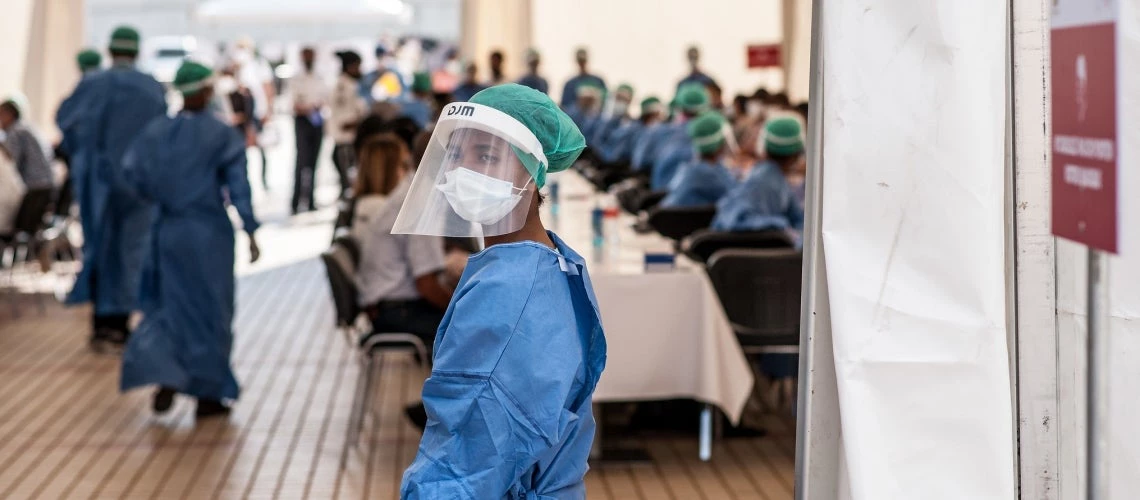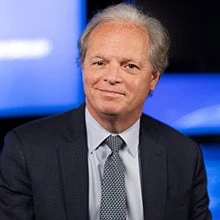 Un site de dépistage de COVID-19 à Madagascar. Photo : © Henitsoa Rafalia / Banque mondiale
Un site de dépistage de COVID-19 à Madagascar. Photo : © Henitsoa Rafalia / Banque mondiale
The COVID-19 pandemic is uncharted territory for every country in the world. It has unleashed both a global health emergency and an unprecedented economic crisis of historic magnitude. Even as the coronavirus continues to spread, the World Bank estimates that, between 2019 and 2020, the global economy will shrink by $4.2 trillion dollars. That is substantially bigger than South Asia’s entire regional economy (which is about $3.5 trillion), and as if we somehow wiped both Germany and Belgium off the economic map. Worse still, the fall from where we expected to be in 2021 if COVID-19 hadn’t hit is closer to $7.5 trillion dollars—equivalent to 40% of the entire U.S. economy, as well as larger than the combined GDP of Latin America and the Caribbean plus the Middle East and North Africa.
While the economic scale of the crisis grabs attention, and could even paralyze us, the human toll is even more pressing. Millions of lives in the poorest countries are on the precipice. The contagion they face isn’t just the virus, as devastating as that will be, but its travelling companions of poverty, deprivation, even starvation. Without strong health care systems to break the stride of the disease—and with debt-laden economies suddenly starved of trade, remittances, investment, and jobs—it is only through global solidarity on an unprecedented scale that can we prevent a humanitarian catastrophe, and decades of progress against extreme poverty dissolving in front of our eyes.
The World Bank Group is committed to doing everything we can to help countries respond to the health emergency, contain the economic damage wherever possible , and start planning for their long-term recovery. We have set up fast-track financing for COVID-19 response efforts and have these underway already in over 60 client countries. Through a combination of new projects, restructuring and emergency components of existing projects, and deployment of our disaster finance instruments, we expect our COVID-19 work to be active in 100 countries by the end of this month.
Our response is targeted in four key areas:
First, we are focused on saving lives by helping client countries implement emergency health operations. This means strengthening health facilities, ensuring that enough frontline health workers are in place and well trained, and helping the necessary medical supplies and equipment get through despite the added pressures on supply chains and trade flows. It means support for public health information campaigns, so that they have wide reach and effectively target the most at-risk groups. And since simple handwashing is critical to preventing illness and death, it means redoubling our efforts to extend the reach of water and sanitation. This includes support for short-term solutions where infrastructure is weak—which too often includes even hospitals in the poorest and most remote areas.
Second, we are helping countries protect the poorest and most vulnerable. We are helping our clients expand the reach of social protection, both through new programs in response to the pandemic and a massive scale-up of existing programs, many of which have served far too few people to be sufficient for the current crisis. In Africa, for example, 80% of workers are in the informal sector, meaning not just that their jobs are at risk but that they’re outside the reach of most traditional cash transfers and other social protection programs. Africa also has well over 100 million people who are chronically on the verge of hunger; globally, the number of people facing acute food insecurity is likely to double by the end of the year. In many places, the pandemic compounds existing risks from climate change, conflict and violence, and weak governments—and even locust swarms , which are destroying crops and threatening food security across parts of Africa, the Arabian Peninsula, and South Asia.
Third, we are working to save jobs and businesses. Due to the impacts of the COVID-19 crisis, four out of five people in the global workforce of 3.3 billion are currently affected by full or partial workplace closures. Nearly 80 percent of the world’s informal economy workers – 1.6 billion people – have faced severe constraints to earning a living as a result of COVID-19 lockdowns and their involvement in hard-hit industries. As the informal sector accounts for up to 90 percent of workers in some emerging economies, the implications of lost wages will cascade from households to communities to whole societies. Without appropriate policy measures, these workers – many of whom are women – face higher risk of falling into poverty and greater challenges in regaining their livelihoods during the recovery. IFC and MIGA, the Bank Group’s private sector arms, are helping to cushion this impact through support to the private sector, so that companies can continue to operate and preserve jobs. We are also working to combat disruptions of supply chains, which are not only critical to the immediate health crisis but also play a key role in preventing hunger and preserving livelihoods.
Fourth, we are building a more resilient recovery. Even as we help countries address immediate needs, we’re looking at how we can support policy reforms to facilitate faster, more resilient, and more equitable growth when the health crisis subsides. If countries want to rebuild stronger and be better prepared for future crises, they need start thinking about the recovery now , even though we appreciate how stretched everyone is by the initial battles with the coronavirus. It’s never been clearer, for example, how access to broadband internet is now essential infrastructure in every country, not just to keep businesses and government functions operating, but also to ensure that 1.5 billion students can keep learning when they can’t go to school. But becoming more resilient also means being clear about what technology can and can’t do: many children aren’t just missing out on face-to-face interaction with teachers, but also the nutrition they get from meals at school. And of course, many jobs, especially for the poor and vulnerable, can’t move online when there’s a lockdown.
The pandemic has already stalled or reversed growth around the world, and it’s likely to push 40 million to 60 million people into extreme poverty. After decades of rapid improvement in living standards, the number of people falling into extreme poverty because of COVID-19 will be equivalent to the entire population of Colombia or Kenya, perhaps more.
For a crisis of this magnitude, the only viable option is an unprecedented, large, and coordinated global response. The World Bank Group is answering the call to act fast, and to act decisively. We must do everything possible to limit human suffering and to help countries find their way back to sustainable growth. Broad, fast action now can help ensure that this crisis does not turn into one of starvation, illiteracy, and social unrest. By working in concert with governments, private sector, development partners and multilateral organizations, across the spectrum from public to private, we are demonstrating that we can meet this challenge. And it is by continuing this strong global collaboration that we will succeed.


Join the Conversation